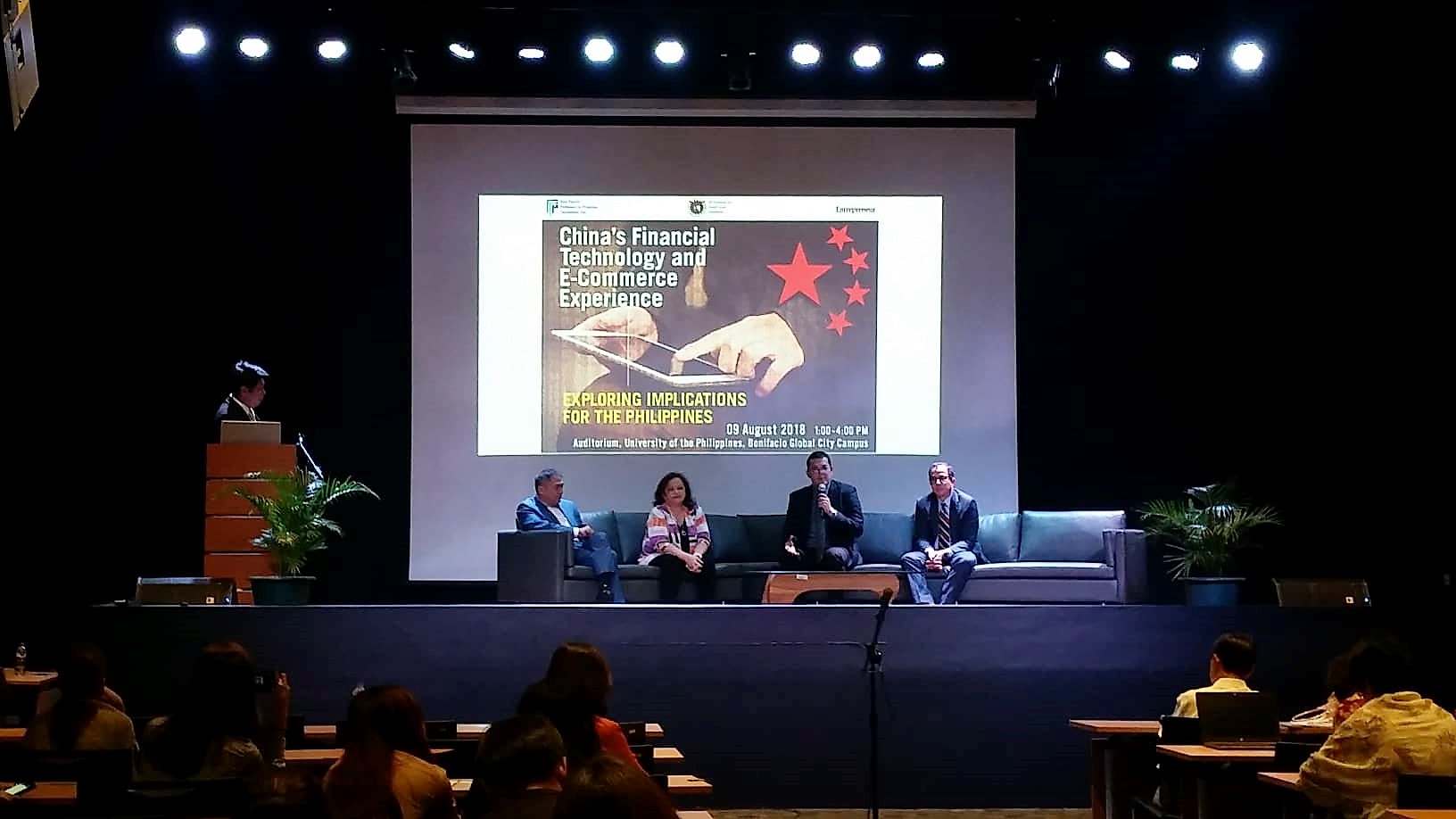
Financial technology and e-commerce have become global phenomena and China is leading the digital revolution. Last 9 August 2018, the forum China’s Fintech and E-commerce Experience: Exploring Implications for the Philippines brought together four distinguished speakers to share their stories and expertise on China’s digital lifestyle, and to speak about emerging trends and how the Philippines can learn from its neighbor’s advances.
Former CNN Beijing Bureau Chief, Mr. Jaime Florcruz opened his presentation by showing how his family uses Fintech in their daily transactions. Having lived in China for 46 years, he witnessed the country’s backwardness in the 1980s transformed into the modern cash-less society that it has become today. Work ethics of the Chinese, population density, incentives from the government, education system, unique competition, and a long-term vision are factors he identified which enabled the country to leapfrog to the digital world.
Mr. Florcruz was first among the presentors to provide insights into the benefits and challenges, and to give recommendations for the Philippines. He further said that the Chinese government tends to macro-manage; they try not to micro-manage. “The government creates the condition but they don’t stand in the way in getting things done, because they need to deliver the goods, to make life better,” he added.
In turn, Atty. Alfonso de Dios, Founder and CEO of Telos Media Works and Adviser to China Central TV, discussed the enablers of China’s Internet growth. “The Great Firewall of China created an environment for domestic companies to thrive,” he emphasized, as compared to the Philippines that mostly adopts applications from the Western countries rather than creating them based on local needs.
Meanwhile, Atty. Ira Paulo Pozon of Caucus, Inc., spoke about the marriage of Fintech and e-commerce which has three components: online portals and apps, the QR Code, and third party payment systems. His discussion provided a quick guide of Chinese apps and their primary uses. One of his recommendations for the uses of Fintech and e-commerce is to make it culturally appealing to the citizenry.
Bringing the government’s perspective into the discussion, Department of Trade and Industry (DTI) Director for Bureau of Trade and Industrial Policy Research Maria Lourdes Yaptinchay noted the challenges to e-commerce development arising from data privacy and consumer protection issues. She focused on regional (i.e., ASEAN, APEC) initiatives on e-commerce, e-commerce and free trade agreements, and the development of a policy framework for cross-border e-commerce.
Their presentations are available at appfi.ph.
- Jaime Florcruz, How China Harnessed E-commerce to Leapfrog from Scarcity to Plenty
- Alfonso de Dios, Ascending the Value Chain: Learning and Earning from Digital China
- Ira Pozon, A View from Tomorrowland: China’s Way of Life and Lessons for the Philippines
- Maria Lourdes Yaptinchay, Facilitating Cross-border E-commerce between the Philippines and China
During the open forum, participants brought up queries and concerns about the effects of e-commerce on mall infrastructures and on the labor sector, technology accessibility and affordability, the lack of incentives to the would-be entrepreneurs, and financial security. Some members of the audience shared their experiences as start-up companies. The One-Person Corporation Bill which was approved by the Senate in early August was also briefly discussed, as such a measure can promote the establishment of more micro-enterprises as well as the use of Fintech and e-commerce.
The half-day forum held in the new University of the Philippines campus at Bonifacio Global City was organized by Pathways to Progress, and the UP Institute for Small-Scale Industries, with Entrepreneur Philippines as media partner and Atty. Rocky Chan of EnterPH as moderator. Fintech drivers, start-up entrepreneurs, economists, government technical staff, educators, students, and the media participated in this event.
